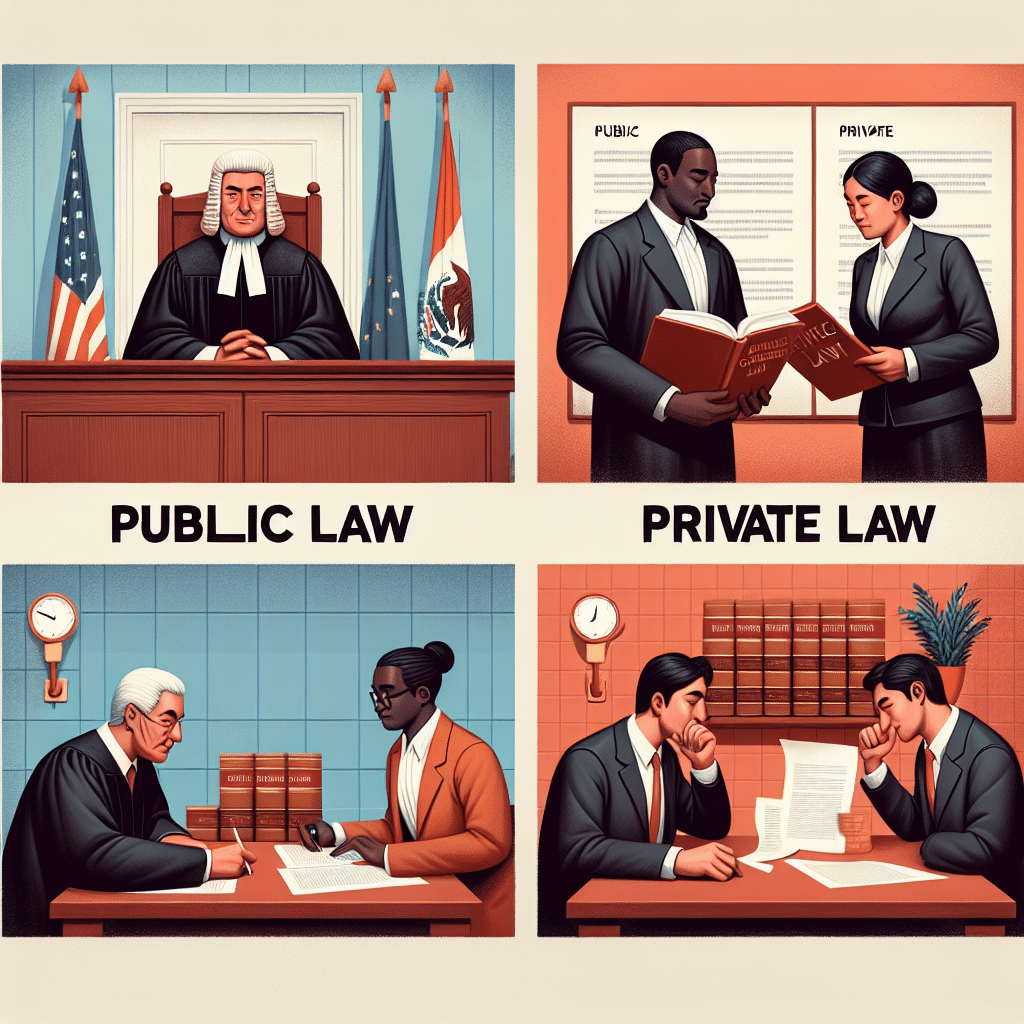Public vs Private Law

Public vs Private Law: Understanding the Key Differences

When it comes to the legal system, there are two broad categories of law that govern our society: public law and private law. While both types of law play a crucial role in maintaining order and justice, they differ significantly in their scope, purpose, and the parties involved. In this article, we will explore the key differences between public and private law, and how they impact our daily lives.
The Basics: What is Public Law?
Public law, also known as constitutional law, focuses on the relationship between individuals and the government. It encompasses laws that govern the functioning of the state, the rights and obligations of citizens, and the balance of power between different branches of government. Public law is concerned with maintaining order, protecting public interests, and ensuring the proper functioning of government institutions.
Examples of public law include:
- Constitutional law: The fundamental principles and rules that define the structure and powers of the government.
- Administrative law: The regulations and procedures that govern the actions of government agencies and officials.
- Criminal law: The laws that define and punish offenses against the public, such as murder, theft, and fraud.
- Environmental law: The regulations that aim to protect the environment and ensure sustainable development.
The Basics: What is Private Law?
Private law, also known as civil law, deals with the relationships between individuals and organizations. It governs the rights and obligations of individuals towards each other, and provides a framework for resolving disputes between private parties. Private law is primarily concerned with protecting individual rights, enforcing contracts, and providing remedies for harm caused by one party to another.
Examples of private law include:
- Contract law: The rules that govern the formation, interpretation, and enforcement of contracts between individuals or organizations.
- Tort law: The laws that provide remedies for harm caused by one party to another, such as personal injury or property damage.
- Family law: The legal rules that govern marriage, divorce, child custody, and other family-related matters.
- Property law: The laws that define and protect the rights of individuals in relation to their property.
The Parties Involved
One of the key differences between public and private law lies in the parties involved. In public law, the parties are the government or its agencies on one side, and individuals or organizations on the other side. The government acts as the representative of the public interest and has the power to enforce laws and regulations.
In private law, the parties are private individuals or organizations who enter into agreements or find themselves in disputes. Private law is primarily concerned with protecting the rights and interests of these private parties, and the government’s role is limited to providing a legal framework and resolving disputes through the court system.
Enforcement and Remedies
Another important distinction between public and private law is the enforcement mechanism and the remedies available. In public law, the government has the authority to enforce laws and regulations through its agencies and the court system. Violations of public law can result in criminal charges, fines, or other penalties imposed by the government.
In private law, the enforcement of rights and obligations is primarily the responsibility of the parties involved. Private individuals or organizations can seek remedies through civil lawsuits, such as monetary compensation or specific performance of a contract. The court’s role is to interpret and apply the law to resolve disputes between private parties.
Overlap and Interaction
While public and private law are distinct categories, there is often overlap and interaction between the two. Many legal issues involve both public and private law elements. For example, a contract dispute between two private parties may also involve questions of constitutional or administrative law if government regulations are at play.
Additionally, public law can influence private law through legislation and regulations. For instance, environmental regulations enacted under public law can impact private individuals and organizations by imposing certain obligations or restrictions on their activities.
Conclusion
Public and private law are two fundamental pillars of the legal system, each serving a unique purpose and addressing different aspects of our society. Public law focuses on the relationship between individuals and the government, while private law governs the relationships between private parties. Understanding the distinctions between these two types of law is essential for navigating the legal landscape and ensuring justice and order in our society.
Whether it’s the protection of individual rights in private law or the maintenance of public order in public law, both play a crucial role in shaping our legal system and upholding the principles of justice and fairness.





















Responses